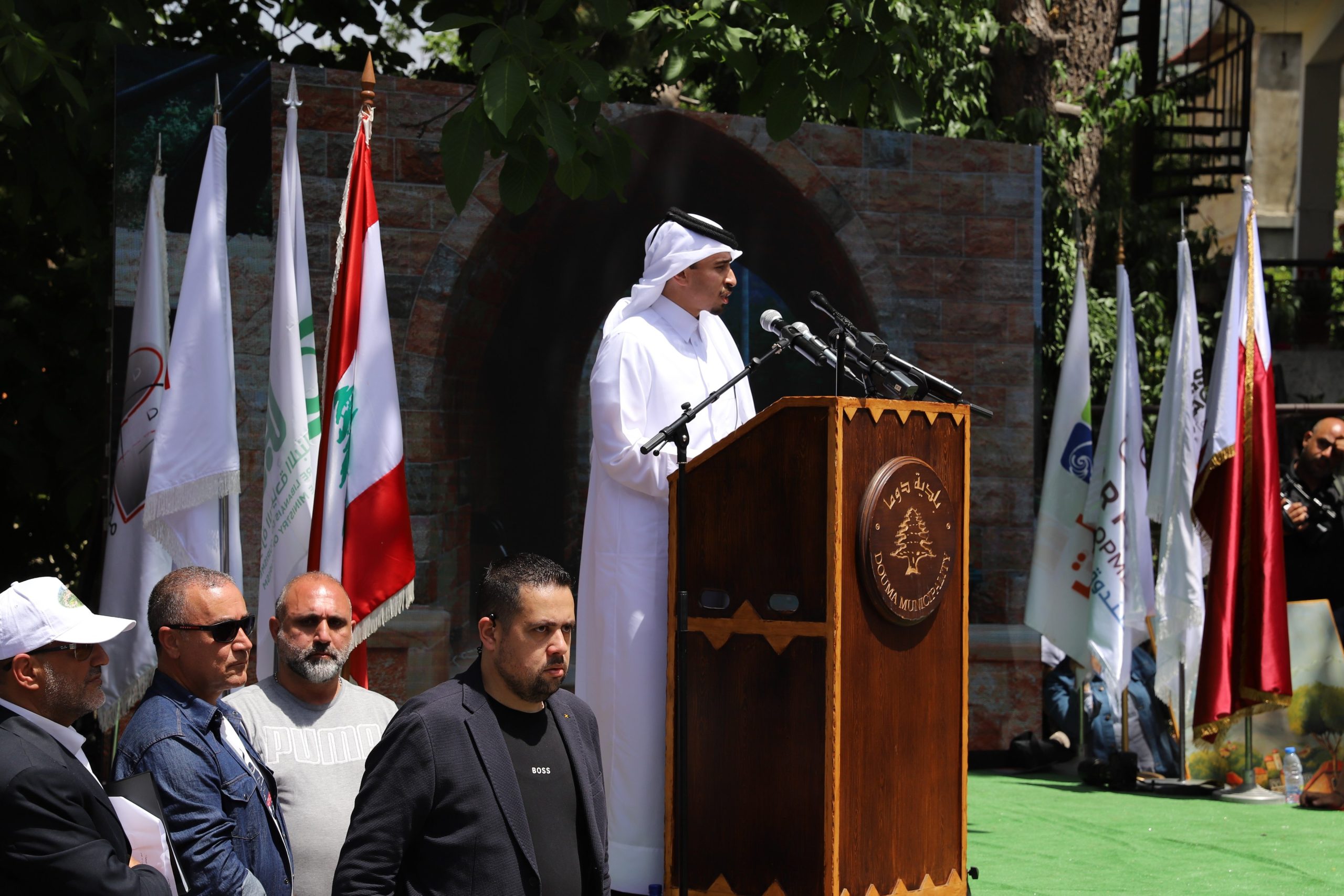The Qatar Fund for Development opened the historic Market of Douma village in northern Lebanon, highlighting Qatar’s ongoing commitment to regional stability and economic growth.
The Qatar Fund for Development (QFFD) opened the historic Market of Douma village in northern Lebanon under a project launched in 2022 by the Gulf entity, Doha’s state news agency (QNA) reported on Saturday.
QFFD carried out the project with Lebanon’s Batrouniyat Association, showcasing Qatar’s commitment to promoting stability and economic growth in the region.
The opening ceremony saw the attendance of Qatar’s Ambassador to Lebanon, Sheikh Saud bin Abdulrahman Al-Thani, and QFFD’s Deputy Director-General for Project Development, Sultan Ahmed Al Asiri.
Lebanon’s caretaker tourism minister Walid Nassar represented the Lebanese side.
Speaking at the ceremony, Qatar’s ambassador said the project represented his country’s commitment “to support Lebanon in all fields.”
Al-Asiri separately said that the project “contributed to building ties, enhancing domestic tourism and attracting foreign tourists.”
On May 7, Al-Asiri and Hector Hajjar, Lebanon’s Minister of Social Affairs, discussed cooperation in the humanitarian and developmental sectors in a meeting in Doha.
The restoration of the market is a crucial step in the Lebanese village which has long-served as a tourist hotspot to explore its heritage while offering jobs in the labour market.
The initiative also fell in line with the eighth Sustainable Development Goal of promoting “inclusive and sustainable economic growth.”
In 2023, the United Nations’ tourism agency ranked Douma as one of the best tourism villages of the year for its cultural richness.
Douma is rich with ancient buildings, including historic churches and 240 traditional houses classified as National Heritage, including ones built during the times of the Greeks, Romans and Ottomans.
Qatar’s support for Lebanon
Opening up job vacancies in Lebanon is also a key step in supporting the local community, where hundreds of thousands are living under the country’s worst economic crisis in decades.
Since 2019, the Lebanese currency has lost more than 95 percent of its value to the U.S. dollar and the country is still reeling from the impact of the 2020 Beirut Port explosion.
Qatar has long expressed its support for Lebanon and its different institutions throughout its economic crisis.
Last week, Qatar’s Prime Minister Sheikh Mohammed bin Abdulrahman Al-Thani reiterated his country’s support for Lebanon’s military during a meeting with Lebanese Army Commander General Joseph Aoun.
The meeting came three months after QFFD delivered the sixth and final batch of diesel and mazut to Lebanon under a $30 million agreement signed between Doha and Beirut in August 2023.
The agreement stipulated the delivery of fuel for six months.
This came after Qatar pledged $60 million in assistance to the Lebanese military in 2022. The previous year, Qatar announced a year-long initiative to provide the army with 70 tonnes of food aid on a monthly basis.
The Gulf state also stepped in to support other sectors in Lebanon, especially after the Beirut Port blast.
At the time, Qatar’s Amir Sheikh Tamim bin Hamad Al-Thani dispatched personnel from the Qatari Search and Rescue Team of the Lekhwiya, or Internal Security Force, to help with emergency rescue operations.
Sheikh Tamim also donated $50 million to help rebuild the capital, with damages estimated to be worth at least $15 billion.
Then in 2021, QFFD and Lebanon’s health ministry signed a memorandum of understanding to reconstruct the old building of the Karantina Hospital in Beirut following the explosion.
QFFD, Education Above All Foundation, and Lebanon’s Ministry of Education signed another MoU to rebuild schools damaged by the blast in 2020.
Going back to 2006, Qatar led reconstruction efforts in Lebanon following the brutal Israeli war on the country, a move that the Lebanese population continued to highlight under the slogan “Shukran Qatar” translating to “Thank you Qatar.”







